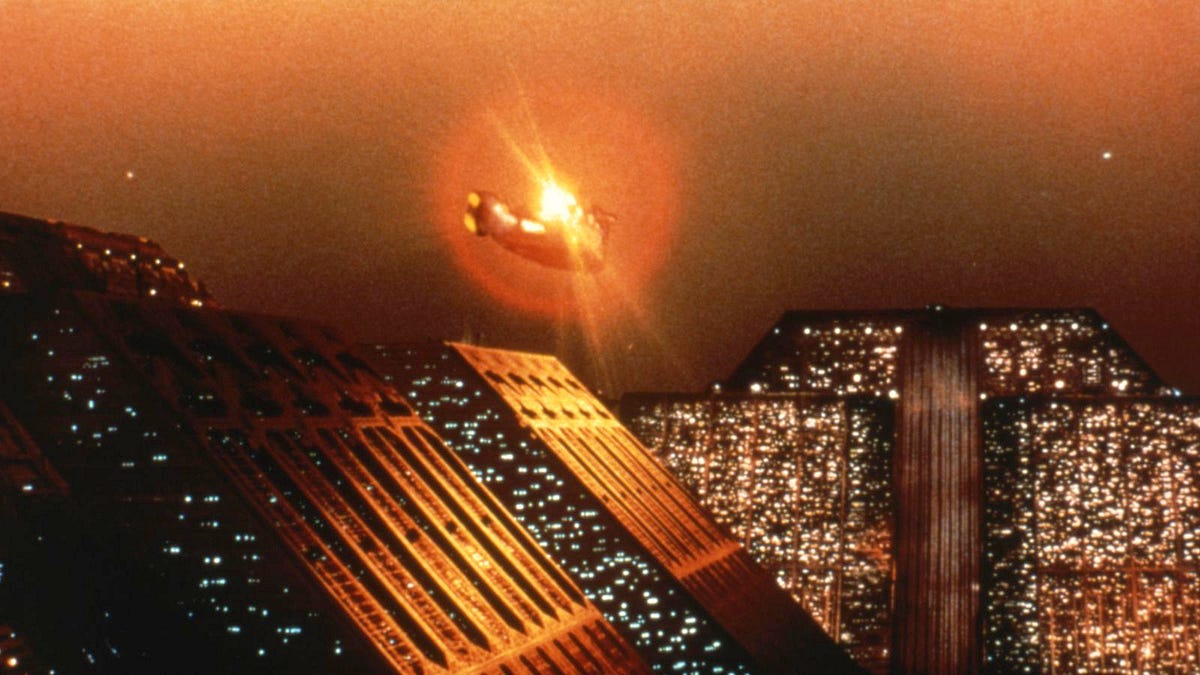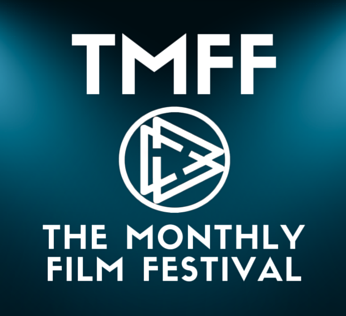The Evolution and Impact of Science Fiction Films
Introduction: A Journey Beyond the Stars
Science fiction films have captivated audiences for over a century, offering not just a glimpse into fantastical worlds, but a mirror reflecting humanity's hopes, fears, and dreams. From pioneering spacecraft voyagers to intricate tales of artificial intelligence, the genre explores the boundaries of imagination and rigorously examines the realms of the possible. Science fiction serves as a prolific narrative form where philosophical questions meet visual grandeur, exploring distinct realities while projecting the future.
The Genesis of Sci-Fi Cinema
The beginnings of science fiction cinema can be traced back to the early 20th century. Georges Méliès' 1902 film, "A Trip to the Moon," is often cited as the first science fiction film. This silent short, inspired by Jules Verne's novels, combined innovative special effects with imaginative storytelling, setting a precedent for the genre. Méliès' whimsical depiction of lunar vistas opened the door for filmmakers to explore otherworldly themes, effectively cementing the foundational elements of science fiction in cinema.
As cinema evolved, so did the scope and ambition of sci-fi films. Fritz Lang's "Metropolis" (1927) introduced a dystopian future reflecting societal fears of industrial domination and class struggles. The film's visual grandeur and thematic complexity elevated it to an iconic status, one that would influence countless filmmakers in the decades to come. Hollywood's "Golden Age" saw the genre grow in popularity, with films like "The Day the Earth Stood Still" (1951) and "Forbidden Planet" (1956). These movies used sci-fi to address Cold War-era anxieties, reflecting technological advancement alongside existential dread.
A Renaissance in Sci-Fi Storytelling
The late 1960s and 1970s marked a significant shift in science fiction cinema, often considered a renaissance period. Stanley Kubrick's "2001: A Space Odyssey" (1968) emerged as a groundbreaking achievement. With its complicated narrative structure and philosophical undertones, Kubrick’s masterpiece explored the evolution of human consciousness and the vast possibility of extraterrestrial contact. The film's pioneering visual effects, such as the famed "Star Gate" sequence, revolutionized the use of special effects technology, pushing the boundaries of what was visually achievable.
Then came the era-defining spectacle of George Lucas' "Star Wars" (1977), which harnessed high-octane adventure within a richly detailed universe. Unlike its predecessor, "Star Wars" engaged audiences with its accessible narrative, endearing characters, and groundbreaking special effects. Its commercial success rejuvenated the genre, leading to a resurgence of interest in cinematic science fiction and spawning a franchise empire that endures to this day.
Following this, Ridley Scott’s "Alien" (1979) combined elements of horror with science fiction, creating a visceral, suspenseful experience that showcased the genre’s flexibility and appeal. Scott's dark, haunting depiction of deep space and its allusions to corporate greed and human vulnerability further compounded the genre's ability to convey both spectacle and substance.
Technology as the Catalyst
Science fiction has continually thrived in the wake of technological advancements, which enhance visual storytelling. With the rise of computer-generated imagery (CGI), directors like James Cameron and Steven Spielberg were able to astound audiences with films like "The Abyss" (1989) and "Jurassic Park" (1993). These groundbreaking films rendered astonishing worlds with remarkable realism, redefining the viewer's experience and broadening the genre's capacity to captivate.
"The Matrix" (1999), directed by the Wachowskis, introduced revolutionary digital effects, intertwining reality and virtual environments to create an intricate narrative framework. The film not only pushed the envelope in terms of special effects, with its bullet-dodging sequences and slow-motion imagery, but also explored profound themes of identity, control, and freedom within a computerized world.
Similarly, the rise of immersive arenas in sci-fi manifested through films like "Avatar" (2009). Cameron's groundbreaking use of 3D technology turned the cinematic landscape into an interactive experience, cementing his film as a spectacle of visual innovation. The stark contrast between the dystopian realities and untouched ecosystems captured audiences worldwide, reiterating science fiction’s capacity to convey powerful environmental messages woven into rich storytelling.
The Social and Cultural Impact of Sci-Fi Films
Beyond dazzling visuals and futuristic premises, science fiction films have critically shaped cultural dialogues and societal perceptions. They serve as reflective mediums that confront contemporary issues through imaginative scenarios. Sci-fi cinema frequently explores themes like technology's impact on society, ethical considerations in scientific advancement, and existential conundrums brought about by human development.
Through films like "Blade Runner" (1982) and "Ex Machina" (2014), the genre questions the morality of artificial intelligence, probing into conversations about what it means to be human in an age dominated by technology. "Interstellar" (2014) and "The Martian" (2015) debate climate change and planetary colonization, invoking discussions on humanity's future in the cosmos.
Moreover, the genre has repeatedly broken barriers by promoting diversity and inclusivity, reflecting the mosaic of a global audience. Recent productions like "Black Panther" (2018) and "Dune" (2021) not only celebrate diverse narratives but also frame important social dynamics through a futuristic lens.
Science fiction films transcend mere entertainment, serving as catalysts for introspection and dialogue, sparking interests spanning scientific inquiry to social justice. Such films are journeys of introspection, reflecting the myriad paths societies traverse in pursuit of progress.
As science fiction continues to evolve, it retains its dynamic role as a harbinger of change, guiding audiences through complex modernities toward infinite possibilities beyond the stars.
The Role of Visionary Filmmakers in Shaping Sci-Fi
The science fiction genre owes much of its success to the visionary filmmakers who dared to challenge norms and expand the boundaries of cinematic storytelling. Directors like Stanley Kubrick, George Lucas, James Cameron, and Ridley Scott, among others, have been instrumental in transforming sci-fi from a niche interest into a major cornerstone of global cinema. These filmmakers have been characterized by their forward-thinking approaches, both in terms of narrative and technology, captivating audiences with their unique visions of the future.
Steven Spielberg, a pioneer of contemporary cinema, brought to life several iconic science fiction films that became cultural phenomena. His works like "E.T. the Extra-Terrestrial" (1982) and "Close Encounters of the Third Kind" (1977) explored themes of alien contact with a sense of wonder and childlike curiosity. Spielberg's warm portrayals of humanity's relationship with the unknown offered a counter-narrative to the common depiction of hostility and fear, allowing audiences to dream of harmonious interstellar communication.
Conversely, directors like Christopher Nolan have merged historical context with speculative futures to create cerebral experiences that challenge perceptions of reality. Nolan's "Inception" (2010) deftly interwove themes of time, consciousness, and memory, creating an intricate labyrinth that engaged viewers on multiple levels. The film's exploration of shared dreaming opened new avenues for storytelling, expanding the cognitive landscapes that science fiction can traverse.
Denis Villeneuve, with films like "Arrival" (2016) and "Blade Runner 2049" (2017), has further cemented his position as a contemporary master of the genre. His focus on cerebral, emotional narratives underpinned by futuristic vistas adds depth and complexity to the discussion of humanity's past, present, and uncertain future. Villeneuve's films often explore the intricacy of language and communication, examining how these elements shape identity and reality.
Interplay Between Science and Sci-Fi Cinema
Science fiction films and actual scientific inquiry have long shared a synergistic relationship, with each influencing and inspiring the other. While filmmakers draw upon scientific discoveries and theories to craft believable and engaging narratives, these same films have motivated scientists to explore uncharted territories, often turning fictitious concepts into tangible realities.
One remarkable example is the influence of "Star Trek" on modern technology. The series, along with its cinematic adaptations, has inspired innovations from mobile phones to virtual assistants, embodying its tagline, "to boldly go where no one has gone before." Similarly, concepts such as space tourism, once merely a fixture of films like "2001: A Space Odyssey," are now viable pursuits as companies like SpaceX and Blue Origin invest in space exploration.
Alfonso Cuarón's "Gravity" (2013) demonstrates the genre's commitment to scientific accuracy while delivering breathtaking cinema. Widely praised for its realistic depiction of spaceflight and orbital mechanics, the film sparked conversations about the operational challenges astronauts face, prompting discussions on safety and technological improvements in space missions.
The exploration of artificial intelligence (AI) in films like "Her" (2013) and "Ex Machina" resonates with ongoing research in AI development, driving analysis of ethical boundaries and the human condition. These films explore relationships between humans and technology, raising profound questions about the integration of AI into daily life—questions engineers and ethicists are only beginning to address.
The Expanding Universe of Sci-Fi Cinema
In recent years, science fiction films have diversified and expanded their reach, reflecting broader cultural influences and providing platforms for underrepresented voices. This globalization of the genre has paved the way for stories rooted in familiar cultural contexts yet resonate with universal themes.
Asian cinematic markets, particularly Japan and South Korea, have profoundly influenced the science fiction landscape with their unique narratives and aesthetics. Anime films like "Akira" (1988) and "Ghost in the Shell" (1995) present dystopian themes through distinctly Eastern paradigms, offering philosophical critiques of technology's role in identity and consciousness. These films have inspired countless Western adaptations, highlighting the reciprocal nature of global cultural exchange in science fiction.
Moreover, African science fiction, once relegated to the periphery, is gaining prominence through narratives like "Black Panther." This film presents an Afrofuturist vision that intertwines traditional African culture with advanced technology, creating a powerful narrative about identity and heritage. By imagining a technologically advanced yet culturally grounded Africa, "Black Panther" stimulates discussions on representation within the genre and beyond.
Through these cultural exchanges, science fiction becomes a universal conversation, reflecting diverse experiences while addressing the shared human condition. The genre's expansion suggests a hopeful trajectory where inclusive narratives empower rather than constrain, demonstrating the boundless potential of science fiction cinema to inspire change.
Conclusion: A Genre of Infinite Possibilities
Science fiction films are more than mere escapism; they are prisms through which we behold the wonders and complexities of existence. The genre encapsulates the thrill of exploring uncharted waters while anchoring itself in the challenges and triumphs of the human spirit. As technology progresses and our understanding of the universe deepens, these films will continue to challenge perceptions and inspire ambition.
Through visionary directors, groundbreaking technological advancements, and culturally diverse narratives, science fiction cinema remains a potent force in shaping societal aspirations and concerns. It epitomizes creative freedom's audacity and the ceaseless human drive to question, explore, and understand the world.
With each new film, science fiction revisits a truth as old as the stars themselves: the potential of humankind is as infinite as the universe we inhabit. As we look toward the horizon, ready to explore new frontiers of storytelling, we find science fiction at the helm—fearless, innovative, and always ready to chart bold new paths through the cosmos.
The Impact of Streaming and Digital Platforms on Sci-Fi Cinema
The advent of streaming services and digital platforms has brought a seismic shift in how science fiction films are produced, distributed, and consumed. With companies like Netflix, Amazon Prime, and Hulu investing heavily in original content, the genre has witnessed a resurgence of creativity and diversification unparalleled in previous decades. Streaming platforms offer filmmakers unique opportunities to explore imaginative narratives unrestricted by traditional cinematic limitations, thus allowing for the creation of ambitious and unconventional sci-fi stories.
These digital giants provide filmmakers with the freedom to experiment with formats that would be challenging to realize within the constraints of traditional cinema. Episodic storytelling, akin to long-form narratives, has gained popularity through series like "Stranger Things" and "The Expanse." These shows blend thrilling plots with intricate character development, engaging viewers in a sustained narrative that unfolds over multiple episodes rather than within the confines of a feature-length film.
Furthermore, the reduced financial risk associated with digital distribution encourages ventures into previously uncharted genres and narratives. This environment nurtures emerging talents and independent filmmakers, who can leverage access to global audiences without the prohibitive costs of theatrical distribution. Films like "The Cloverfield Paradox" (2018), released directly to streaming platforms, showcase the potential of digital avenues for launching innovative science fiction concepts.
Interactive and Immersive Sci-Fi Experiences
Emerging technologies are also transforming the way audiences engage with sci-fi cinema, moving beyond passive observation to interactive participation. Virtual reality (VR) and augmented reality (AR) are enabling immersive environments that allow viewers to step into the stories, enhancing the sense of exploration and presence inherent to the genre.
VR experiences, such as "The VOID's" "Star Wars: Secrets of the Empire," invite users to physically interact with cinematic worlds, blending visual fidelity with tactile feedback. These participatory narratives promise new dimensions of storytelling, where viewers become active characters within the film's universe, making choices and altering story outcomes in real time.
Similarly, AR is breaking new ground by overlaying digital elements onto the physical world. Experiments in augmented reality storytelling, though nascent, offer potential for innovative extensions of film universes that interact with our surroundings. Such technologies pose intriguing possibilities, fostering collaboration between filmmakers and technologists to forge new frontiers in storytelling.
The convergence of narrative and technology has breathed fresh vitality into science fiction, merging cinematic spectacle with experiential engagement. These developments exemplify the genre’s inherent adaptability and its unyielding pursuit to explore ‘what if’ scenarios unbounded by time and space.
The Future Horizons of Sci-Fi Cinema
As we contemplate the future of science fiction films, it becomes evident that the genre's trajectory is intertwined with our collective vision for the future. In the face of pressing global challenges, sci-fi cinema functions as a lens through which we perceive potential futures—offering solace, cautionary tales, and calls to action. The genre is uniquely positioned to grapple with issues like climate change, artificial intelligence ethics, genetic engineering, and the quest for extraterrestrial life.
Emergent voices and diverse perspectives will continue shaping these narratives as more creators from varied backgrounds contribute their unique experiences to the genre. This inclusivity will spawn new stories that resonate globally, fostering cross-cultural understanding and empathy.
Furthermore, as scientific advancements accelerate, the lines between science fiction and fact will likely continue to blur, prompting filmmakers to rethink and redefine what the genre encompasses. Intersectional narratives that weave hard science with imaginative speculation will become increasingly prevalent, holding a mirror to humanity's progress and potential pitfalls.
The proliferation of accessible filmmaking tools will also democratize the process, empowering a new generation of creators to tell stories that might otherwise remain untold. This democratization will enrich the tapestry of sci-fi cinema, ensuring it remains a vibrant, multifaceted domain of creativity and exploration.
Conclusion: Science Fiction's Unending Legacy
The dynamic evolution of science fiction films illustrates the genre's continued relevance and enduring appeal. With its capacity to imagine extraordinary futures while grounding them in human experience, sci-fi cinema remains a powerful vehicle for questioning the present and envisioning the possibilities of tomorrow.
Future generations will undoubtedly carry the torch, channeling innovation and storytelling ingenuity to explore diverse universes yet conceived. As we stargaze into the unknown, science fiction films remind us that within the vast expanse of imagination lies uncharted potential—an infinite frontier propelled by curiosity, creativity, and a ceaseless quest for discovery.
In embracing the captivating odyssey of science fiction cinema, audiences are invited to join an ever-expanding journey—a remarkable testament to the enduring power of human imagination and its wondrous ability to light a path toward the future. As we venture forth, science fiction serves not only as a guide but as a promise, reaffirming its timeless credo: the realm of possibility is as endless and vibrant as the cosmos itself.




















Comments